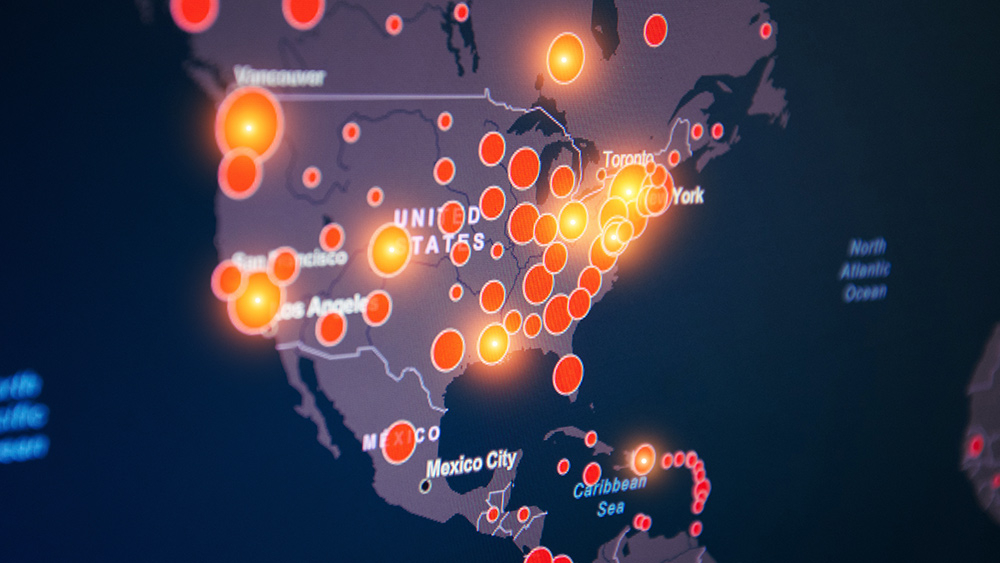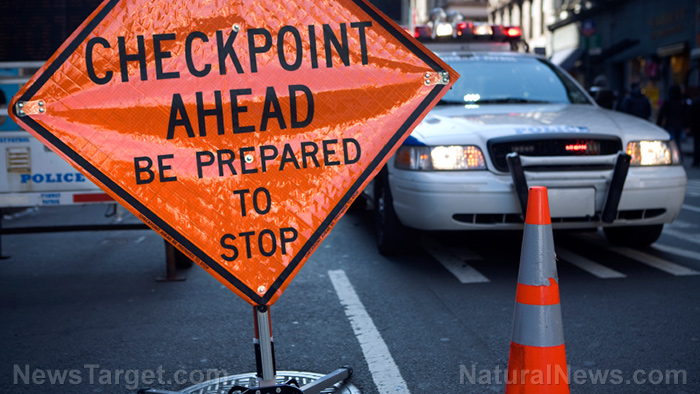Liberal states facing a COLLAPSE of state incomes thanks to coronavirus shutdowns: Will pensions collapse, too?
04/05/2020 / By JD Heyes

The longer the Wuhan coronavirus (COVID-19) pandemic lasts, the longer governors and mayors will keep ‘stay-at-home’ policies in place, and the longer those last, the longer ‘non-essential’ businesses will be closed and Americans will be laid off from their jobs.
And the longer states will be starved for income taxes, which is creating a new fiscal crunch for jurisdictions that were already hard-pressed.
According to Sophie Quinton of the Pew Trust:
Economists who advise the Colorado legislature told lawmakers in mid-March to expect a roughly $800 million revenue decline for the next fiscal year as people travel and dine out less during the coronavirus pandemic. That estimate already looks far too optimistic.
“The forecast that we released in March — we weren’t imagining the world that we’re living in right now,” said Kate Watkins, chief economist for the Legislative Council Staff, a nonpartisan research arm of the Colorado General Assembly.
The math on this isn’t hard to do or understand: If businesses are closed, employees don’t work. If they don’t work, they aren’t paying taxes, they are absorbing tax money via unemployment benefits (for a time). States that have tight budgets or are running deficits are going to be even harder pressed when the income flow essentially stops.
States earn revenue in a variety of ways, of course, but those methods depend on activity. They depend on having a vibrant economy. They depend on people being able to engage in commerce. They depend on a functional society.
All of these methods have either been eliminated completely or greatly reduced thanks to coronavirus-related shutdowns of cities and states. So while we’re trying to control the spread of the virus, we’re also choking off all levels of income for the states (and cities) we depend on to provide us with vital services.
Let’s extrapolate this into the near- and mid-term. If mandatory business closures and shutdowns continue for a few more weeks, the damage to state and local treasuries will be significant but manageable.
‘It looks like the drop-off that states could be facing this time could be more severe than the Great Recession’
What happens if these conditions continue for a couple of months? Or half a year? The economic damage to state treasuries will become insurmountable. Budgets will be blown out. States that can borrow will have to do so just to meet minimalist expenditures.
But there are going to be some states like Illinois, which already has a near-junk bond credit rating and a massive pension obligation in the billions of dollars that it already did not have the income to cover. (Related: Debt collapse ‘perfect storm’ shaping up that will almost instantly wipe out pension funds nationwide.)
What happens now that the governor, J.B. Pritzker, has ordered businesses shuttered and put the state under a stay-at-home order? Only so many people can work from home.
Pew Trust adds:
Governors nationwide have ordered businesses to close and people to stay home in order to slow the spread of the novel coronavirus. But the public health measures have created an economic crisis that will, in turn, hit state and city budgets.
Now policymakers are scrambling to figure out how much spending power they’re losing at a moment when they need money to fight the pandemic and help laid-off workers and struggling businesses.
And Brian Sigritz, director of state fiscal studies for the National Association of State Budget Officers, a Washington, D.C.-based membership organization, says the situation looks bleaker now than even at the bleakest period in our history.
“It looks like the drop-off that states could be facing this time could be more severe than the Great Recession,” he said.
The amounts vary, but they will hit the respective state governments hard no matter what. Loss of income ranges from $225 million in Hawaii to an astounding $15 billion in New York.
What services will have to be cut in order to meet budgets? Who will suffer for that? We still don’t know. But we’re about to find out.
Sources include:
Tagged Under: bankruptcy, businesses, closures, Collapse, covid-19, debt, epidemic, finance, government spending, income tax, loss, losses, outbreak, pandemic, shutdowns, state budget, states, tax revenues, unemployment, Wuhan coronavirus
RECENT NEWS & ARTICLES
Pandemic.News is a fact-based public education website published by Pandemic News Features, LLC.
All content copyright © 2018 by Pandemic News Features, LLC.
Contact Us with Tips or Corrections
All trademarks, registered trademarks and servicemarks mentioned on this site are the property of their respective owners.





















